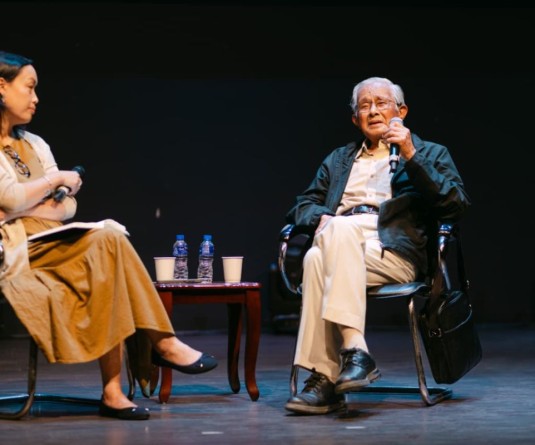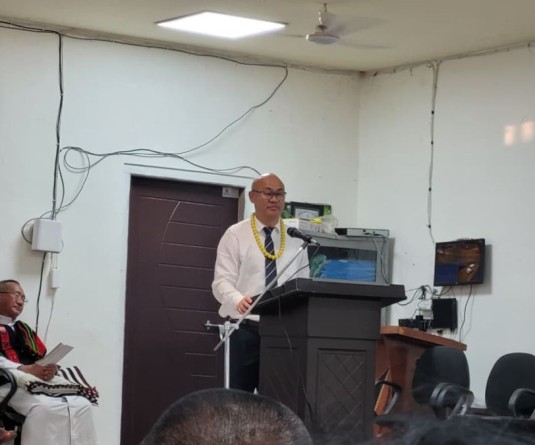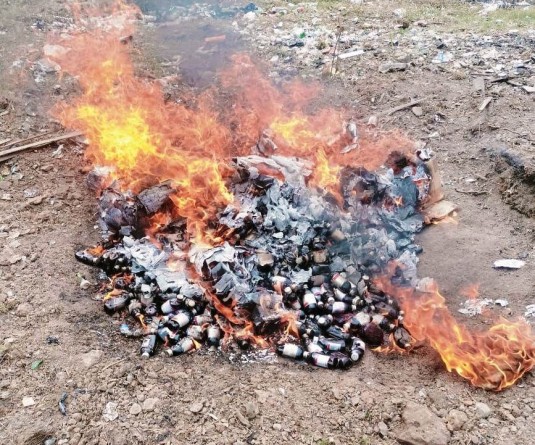Dignitaries, faculty members, and students of Government College Dimapur gather during the awareness campaign on ‘One Nation, One Election.’
DIMAPUR, FEBRUARY 16 (MExN): A student awareness campaign on "One Nation, One Election" was held at Government College Dimapur, focusing on the potential benefits of simultaneous elections in India. The event highlighted how unified elections could improve governance, reduce administrative costs, and enhance policy stability.
Speaking at the program, Basu Damani emphasized that a synchronized electoral process could significantly cut down election expenditure, minimize disruptions to governance, and ensure continuity in policy implementation. He also addressed the influence of student power in politics and the challenges posed by nepotism in the electoral system. He cited historical examples, including the role of students in political transformations, drawing parallels to Chanakya's strategy in overthrowing the Nanda dynasty with the help of scholars from Taxila University. Damani urged students to recognize their role as the future torchbearers of the nation and to take an active part in democratic reforms.
He also criticized the frequent electoral cycles in India, stating that elections held every six months in different states create unnecessary financial strain on the government, disrupt normal governance, and encourage corruption. He highlighted the substantial money spent by politicians during elections, often leading to nepotism and favoritism in governance. Damani stressed that if elections were conducted simultaneously, these issues could be mitigated, allowing resources to be redirected toward developmental initiatives such as education and healthcare.
Shilukaba Longchar, another speaker at the event, pointed to the successful implementation of simultaneous elections in countries like Sweden and South Africa. He underscored the substantial financial and logistical burden of conducting separate elections in India, arguing that a unified election system could help curb corruption and unaccounted cash in the electoral process. He further noted that redirecting election-related expenses could benefit sectors such as healthcare, with 50% of health infrastructure seeing improvements.
Longchar also clarified the implementation process, explaining that under the proposed system, if a legislative house is dissolved, fresh elections would be held only for the remaining tenure, ensuring electoral stability while maintaining the new framework.
Students participated in the discussion, engaging in conversations about democracy, voter participation, and political accountability. Many expressed concerns about the feasibility of implementation but acknowledged the potential benefits of a streamlined electoral process.
The program was chaired by Jesse Awomi, with an invocation led by Dr. P. Yanger Longchar, Director of WAYs Mission Ministry. The welcome speech was delivered by Government College Dimapur Principal Dr. Sanjay Sharma, while the closing remarks and vote of thanks were given by Shilukaba Longchar.






